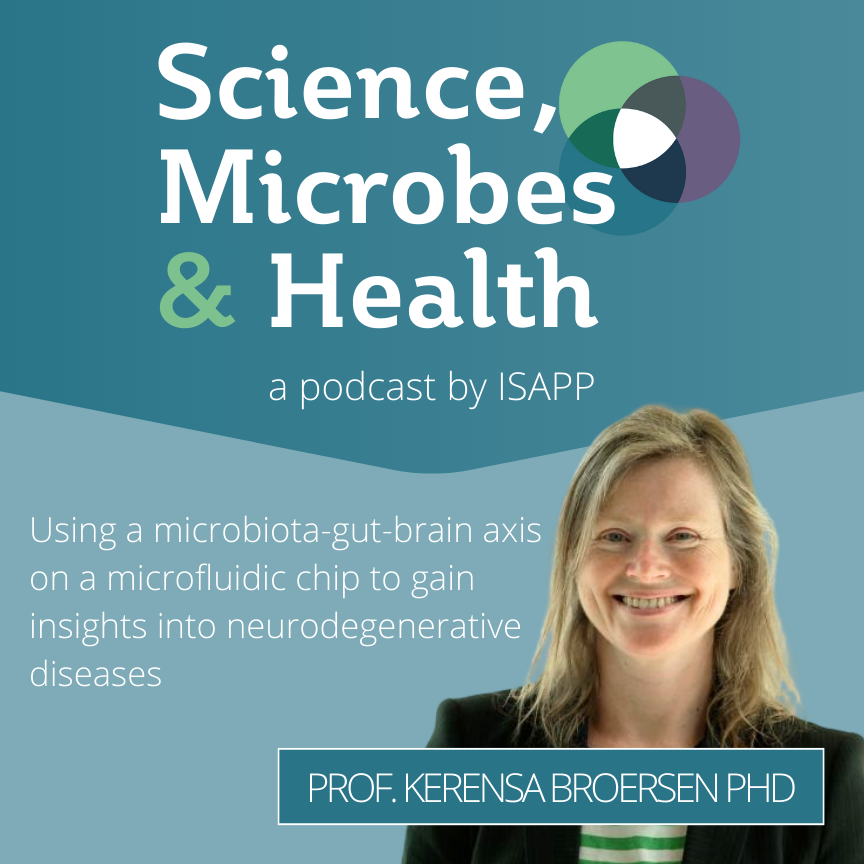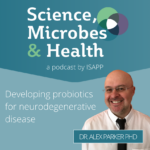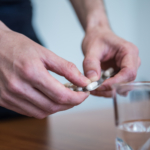Using a microbiota-gut-brain axis on a microfluidic chip to gain insights into neurodegenerative diseases, with Prof. Kerensa Broersen PhD

Podcast: Play in new window | Download
Subscribe: Apple Podcasts | Spotify | RSS
This episode features Prof. Kerensa Broersen PhD from University of Twente in the Netherlands, speaking about using an innovative model of the microbiota-gut-brain axis to learn about neurodegenerative diseases such as Parkinson’s disease. Prof. Broersen says that while clinical studies are applicable to human health and animal models have great physiological complexity, her lab focuses on a model that’s more flexible and that allows manipulation of specific signalling events – a microbiota-gut-brain axis on a microfluidic chip. To make the brain component, they use stem cells from healthy people (from bone marrow, blood, or urine), which can differentiate into different types of cells depending on the factors they’re exposed to. They create cells that represent different areas of the brain, and can keep them alive and functional for at least 100 days. They can also represent disease processes in the model. It’s known that the gut microbiota is involved in neurological disease and may be either a cause or consequence of the brain pathology; so in this model, the scientists culture gut microbes in one microfluidic device and the brain in another microfluidic device, then connect the two. This allows them to make changes in one compartment and see how it affects the other. In this way, Prof. Broersen is aiming to understand some of the very basic mechanisms of neurodegenerative disease development and progression.
Episode abbreviations and links:
- Study on how proteins found in food may influence the mechanisms of neurodegenerative disease pathology: Cross-seeding of alpha-synuclein aggregation by amyloid fibrils of food proteins
- Lab website, Applied Stem Cell Technologies
About Prof. Kerensa Broersen PhD:
Kerensa Broersen obtained a PhD in food chemistry from Wageningen University and Research, the Netherlands, in 2005, followed by two postdoctoral positions at the Medical Research Council in Cambridge, UK and the Free University of Brussels in Belgium, both focussing on protein aggregation in neurodegenerative disorders. She then joined the University of Twente at a tenure track assistant professor position to further investigate neurodegenerative disorders making use of neuronal cell types. Following a sabbatical at the University of California – Berkeley, in the group of Randy Schekman, Kerensa Broersen moved into the field of gut-brain communication studying the fundamentals of signaling pathways driving the intricate interaction between the intestinal microbiome, the gut and the brain. For this, she is making use of the differentiation potential of stem cells to create mini-versions of the organs involved cultured onto microfluidic devices.






